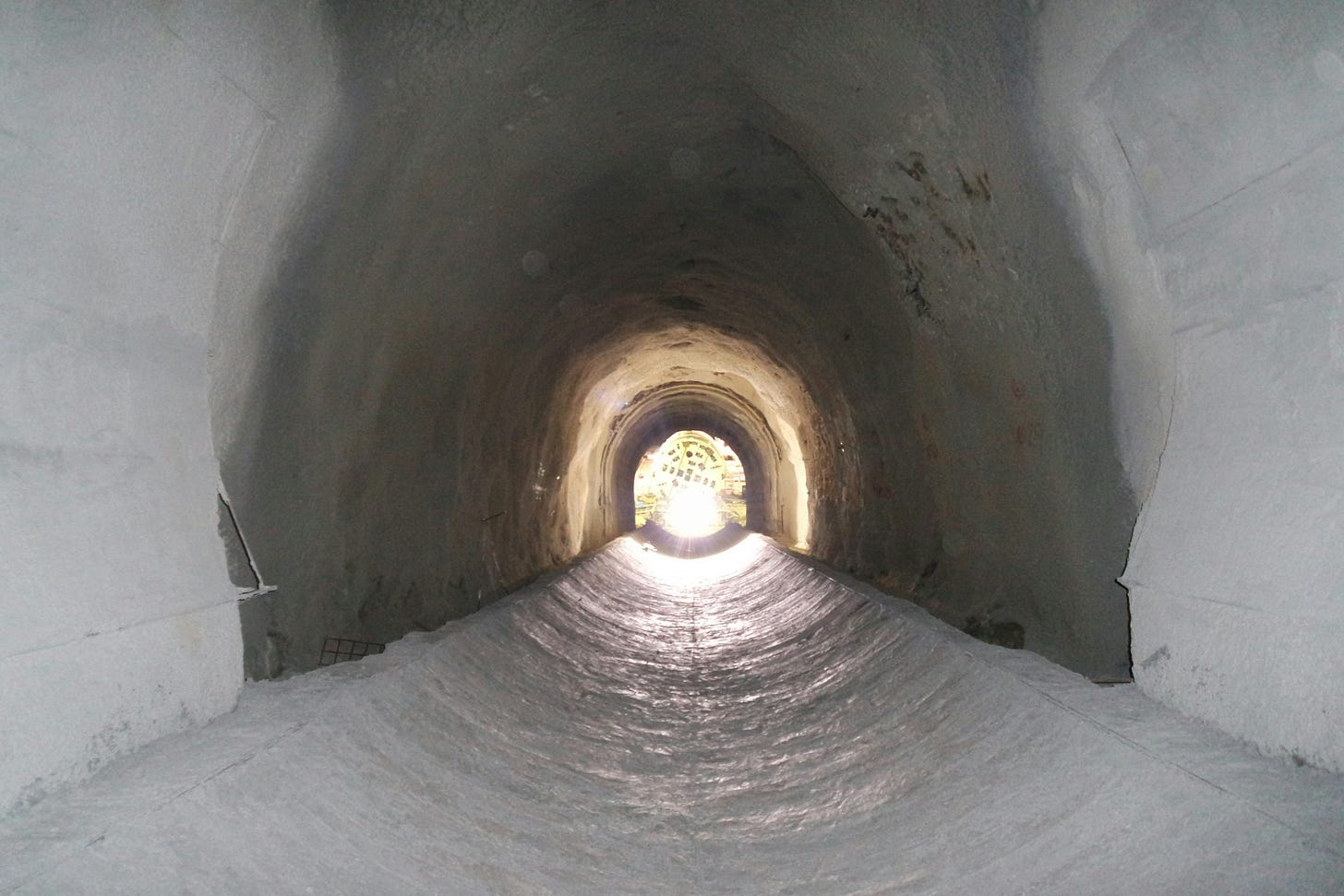Imagine travelling on foot from deep underground.
It’s been a long journey to the surface but at last you’re approaching the light. If you reached out, you could touch that light as though it were solid.
There’s someone behind you, someone who has been with you all the way: the lover you went into the darkness to retrieve but whose presence is invisible because you’ve been forbidden to look back. The price of looking back is loss—the banishment of your lover forever, back into the underworld.
But, just as you are about to break free, you feel an urgent impulse to know. Is your lover still there? Holding your breath, you turn around.

And you catch a final glimpse of the one you love, who dissolves into fragments before your eyes.
Recently, I was reminded of this story of Orpheus, whose journey into the underworld to reclaim Eurydice ends (as many Greek myths do) in tragedy. It was at a concert on the eve of the last Winter Solstice—fittingly, perhaps, on the day of the longest darkness—in which British singer-songwriter Katherine Priddy performed ‘Eurydice’, her spine-tingling reworking of this tale.1 The story reminds me how easy it can be, when a journey is long and arduous, to lose heart. It reminds me how sometimes all we can rely on is trust, or literal blind faith, to ensure our return to the light (though, as I’ll suggest next time, sometimes the darkness is necessary, even desirable, for our creative growth).
Like Eurydice, we can get stuck in the underworld of our creativity—destined to be imprisoned forever in the dark. I’ve certainly felt like that during phases of my writing journey: times when my writing voice was so faint I couldn’t hear it; times when it felt too difficult to put one step in front of the other to navigate back to the surface.
But the thing about Eurydice is that (like the women in so many other mythological stories) she has no control over her fate. She is kidnapped, rescued and banished as a result of her husband’s actions.
What if we focused on liberation and choice? What if we could navigate the underworld like Orpheus (rather than Eurydice) but rewrite the story?
I’m curious: where do you turn your attention—what do you do—during times when you’re navigating the darkness? I’d love to hear. Drop your thoughts in the comments below, and next time I’ll share my own reflections on ways we might make the journey through our creative underworld less arduous.
If you enjoyed this post, you might also be interested in this one, below, which explores how the myth of Penelope (and metaphors of weaving) spotlight issues of voice, choice, creative expression and empowerment.
Interweaving the warp and the weft: Part One
Greek mythology is shot through with examples of weaving, the art form practised by goddesses in stories that have been handed down through western civilisation for generations. The representations of weaving in these stories bring to the fore, I think, issues of voice, choice, creative expression and empowerment—especially for women.
I highly recommend Katherine Priddy’s beautiful music, by the way. She has a new album out on 16 February 2024 called ‘The Pendulum Swing’. I promise I’m not earning commission for this recommendation! - it’s just good to support a talented, emerging artist.





Oh, thanks for the link to that video - it really IS beautiful. Funny, indeed - there is something in the ether I think! I love that image of near-sightedness. That really chimes for me too: similarly, I try to keep the focus narrow and take it one 'turtle step' (as Martha Beck would have it) at a time. More about that in the next post, anyway. In the meantime, thanks again for sharing your thoughts here, Tara.
Funny: I came across this gorgeous duet from a Brazilian adaptation of the story known as "Black Orpheus." So I was reading about this recently, also. https://www.youtube.com/watch?v=i2GnvnjvQKk
To your question, I think I bring my focus in close, like being near-sighted and walking without glasses.